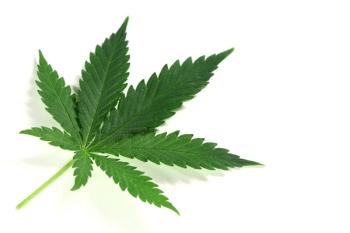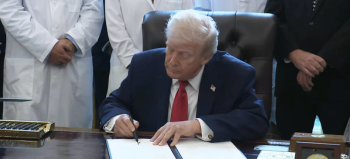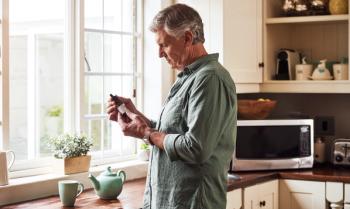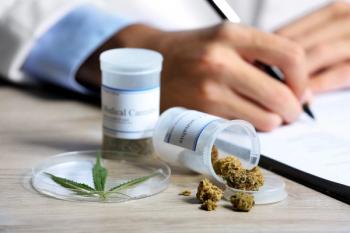
Meet the Cannabis Science Conference Fall Speakers: Dawn-Marie Steenstra on Medical Cannabis Patient Advocacy
Let’s meet Cannabis Science Conference Fall speaker Dawn-Marie Steenstra, a Clinical Director of Dispensaries in Maryland, and a founder for the National Clinical Director Consortium.
Cannabis Science Conference (CSC) Fall will be taking place in Providence, Rhode Island September 20-22nd. CSC Fall features several exciting tracks: analytical science, cultivation, medical cannabis, and psychedelics. With expert speakers coming in from around the country, we thought it was a great opportunity to introduce some of them and get a sneak peek into their presentations. Let’s meet Dawn-Marie Steenstra, a Clinical Director of Dispensaries in Maryland, and a founder for the National Clinical Director Consortium. Dawn-Marie has been a bedside and community nurse for 26 years. As a passionate advocate and one of the very first cannabis nurses in the country, she is an approved Clinical Director of Dispensaries for Maryland. As CEO of Entourage Consulting Services, she consults with hundreds of patients for multiple dispensaries. She is organizing an exciting panel discussion in the medical track at the Cannabis Science Conference Fall titled “Clinical Directors, Navigating Legalization and Beyond” taking place Thursday, September 21st. Here, Steenstra shares her background as a nurse and how she got involved with medical cannabis as well as a preview of what to expect from her exciting panel discussion!
Can you tell us about your background and how you got involved with medical cannabis and patient advocacy?
Dawn-Marie Steenstra: I came into cannabis quite by accident. I was actually dating someone at the time and he took me to a Patients Out of Time Conference when we were first dating, and I learned what he did for a living. He was involved in the hemp industry for many, many years, and I had had lots of experience in long term care, hospice, and community health. I had been very discouraged by what I saw with the hospice treatments we had. We have four drugs that we have in our bag that we can use usually for these patients and their distress, and a lot of times they don't quite work. Right before I met my husband-to-be, I actually had a case where I argued with a physician because he had wanted me to give a patient back-to-back injections of morphine, and the patient was actively dying, and I knew that, but I had the distinct impression the patient was trying to wake up to talk to their family. So, any time the patient made a noise, the family would get upset and they would want me to do something for the patient’s pain. It was about a half an hour apart, and I told the doctor that the patient wasn't clearing the morphine, and that I was afraid that if I gave them another injection they were going to die. Even though the patient was actively dying, I didn't want to speed up that process. I didn't feel like it was my place. Long story short, I lost the argument. I went and gave the injection—20 minutes later, the patient has passed.That shook me up quite a bit. I decided that this was not what I wanted to do anymore. So, I had an open mind. I went to this conference with my husband, the Patients Out of Time Conference, and I had just been through breast cancer myself the year before that. So, I'm sitting there and I'm learning about this plant that is naturally occurring that we can all grow if we want to, that has been prohibited from having access to. And I thought to myself, my God, I could be helping my patients with this. This makes sense. I had done cannabis when I was a teenager. I knew the relaxing properties. I knew that it helped pain, and I thought it was incredible. But being a kid, you don't know these things.
Anyway, when I realized that this was prohibited to patients, I kind of became a rabid advocate shortly thereafter, and I joined Americans for Safe Access. I learned how to do legislative work, learned how to write letters to my representatives, and I went about trying to teach people because we were just talking about the cannabis program in Maryland at the time. I began trying to gather people together to learn about cannabis and to teach others about cannabis, teach fellow nurses, doctors—anybody that would listen. So, that's basically how I got into all this.
What are you most looking forward to at the Cannabis Science Conference Fall coming up in September?
Dawn-Marie Steenstra: I’m looking forward to catching up with the industry and catching up with the science. It's changing all the time, and now that we have psychedelics coming into the mix, it's been very fascinating just following the trajectory of what's happening in the cannabis world. It's kind of like a family reunion at this point. I've been in cannabis world for about 12 years, so I go to the conferences and it's like a big family reunion to see everybody.
Can you share a summary of the panel discussion that you're organizing?
Steenstra: Well, in July 2023, Maryland instituted adult use, and we've been watching from California to Massachusetts to Maryland and other states, what happens to patients once adult use becomes the norm. We've been trying to navigate that as Clinical Directors, trying to help guide our patients in the best way that we can. We've noticed some things happening. They've happened in other states as well because the sales come primarily from the recreational market. We can't deny this. But the reason that we're here is to help teach patients and teach the consumers that cannabis is not only something for relaxation after work or at a party, or a lot of people kind of trade alcohol for cannabis a lot of times, as far as the way their mind works, they don't really look at it as a tool and a toolbox for helping with health conditions. So, I'm hoping that we can teach people that it's just as important to care about the formulas that are available for people with health conditions as well as people in the recreational market.
For anyone that maybe isn't familiar because there are not Clinical Directors in every state, what exactly do you do in Maryland and how is that different from what other states might have in place?
Steenstra: Well, as Clinical Directors what we do is we sit down with patients individually, case by case, and we go over their case, we go over medication reconciliation to see if any medications or pharmaceuticals that they're on or supplements might interfere with their cannabis use or be contraindicated with cannabis use. There are a few drugs that we have to be careful of. We also sit down and we go over their concerns and what their wishes are as far as prioritizing what they want handled. Most of what we see are people with pain, sleep issues, and anxiety—in that order. So, I'll ask them to give me the top three priorities of what they want handled. And by that measure, we can determine the best terpenes, the best ratio of THC to CBD, or even the best cannabis varietals that might help.
Stay tuned for more with Dawn-Marie Steenstra with our live video conference coverage taking place September 21-22, 2023 or join us in person to hear Dawn-Marie and her colleagues’ panel discussion as well as many others at the Cannabis Science Conference Fall in Providence, RI. Register today with code EARLYBIRD to save 30%:
Newsletter
Unlock the latest breakthroughs in cannabis science—subscribe now to get expert insights, research, and industry updates delivered to your inbox.




